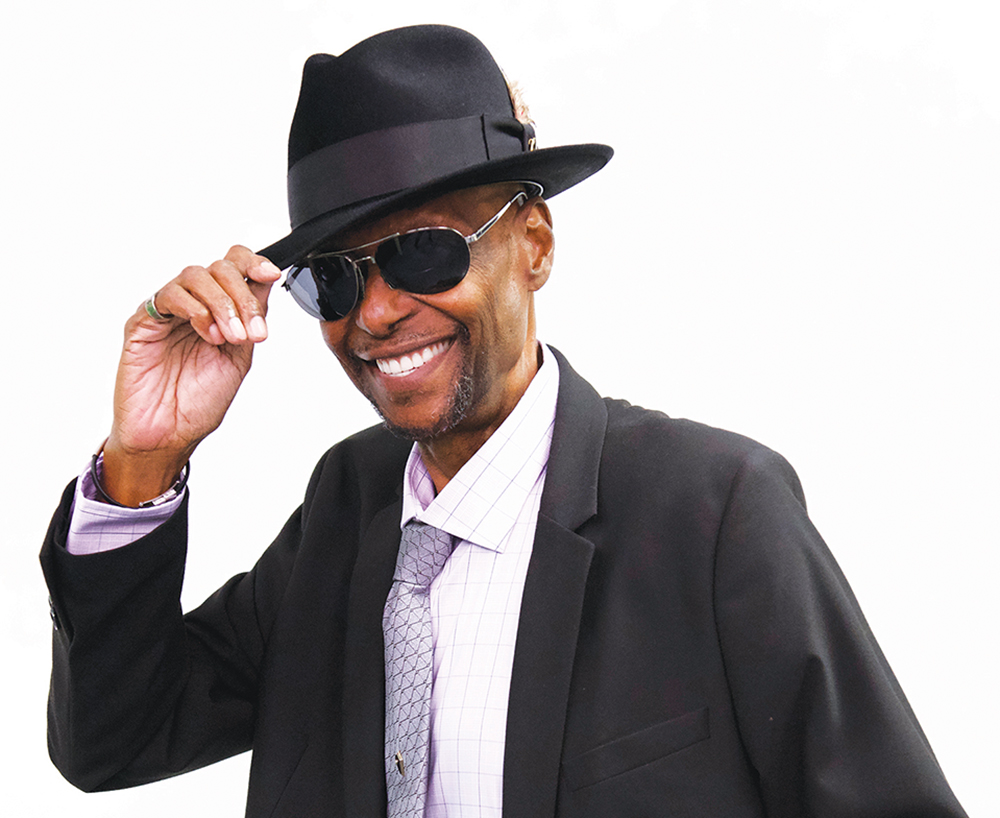It was a momentous evening when Memphis-born jazz giant Charles Lloyd took to the stage Friday, November 4th at the Germantown Performing Arts Center (GPAC), but not just for the music. Before playing a note, Lloyd reminisced at length about his youth here, including his time at Manassas High School, where “Frank Strozier put the hurt on me,” as Lloyd said, by virtue of his better chops. But he also took a moment to reflect on a recently fallen friend, one who figured heavily in the local jazz scene for decades: Malvin Massey Jr. Lloyd, who said he spoke with Massey often in his comings and goings through Memphis. And GPAC executive director Paul Chandler even paid tribute to Massey’s manner of speaking, quoting words spoken at his funeral, “Jazz’s human voice was Malvin. Malvin Massey sounded like jazz.”
For countless Memphians over the decades, that was literally true, as his voice wove in with the music of WUMR, the University of Memphis’ jazz-oriented station. Massey, who died this October 29th, became the station’s general manager in 2009, but he’d already been involved with the station nearly 20 years by then, serving as volunteer DJ, music director, and program director over that time. And when Massey left the station in 2020, he carried on promoting what he often called “that classic African-American art form called jazz,” joining co-host Howard Robertson for the popular Kudzukian podcast, Riffin’ on Jazz.
“He told me some years ago that a fan described his voice as ‘a whiskey baritone,’” says Robertson, whose words on Massey’s voice at the funeral were quoted by Chandler. But Robertson personally remembers when Massey’s voice was likely only a pre-teen squeak. “Malvin and I go way back to junior high school. We went to seventh grade together at Corry Junior High, right here in Memphis. We both thought at the time that we were God’s gift to the saxophone, and we were fiercely competitive. Everybody back then was in a band; we were in bands from the time we were 12 years old.”
Massey kept playing music all his life, but he really built a career in radio. Robertson, also boasting years of experience in radio, observes that “he helped build WUMR into one of the best jazz stations in the country. It was absolutely one of the finest university-owned and operated radio stations anywhere.” Indeed, it was one of only eight such stations in the country and carries on today after its rebirth as WYXR, supported by a partnership between the university, Crosstown Concourse, and The Daily Memphian.
There, Massey became a trusted mentor to many. Social media comments upon the announcement of his death reflected as much. “If it wasn’t for Malvin and the chance he gave me at WUMR as a high school graduate, I may have never gone to the University of Memphis,” wrote one former associate. “He was a great guy and mentor to me,” wrote another.
More recently, Massey’s podcast work is distinctive; the fact that both he and Robertson played music all their lives gave Riffin’ on Jazz a unique spin right out of the gate, not least because the hosts interjected bits of jazz lore they’d picked up over the decades.
“That’s how we learned! And that’s why we were thrilled to be able to do the show like that,” Robertson says. “We learned about it at the feet of old guys — our daddies, our uncles, many older people. And we’re sitting on the floor in front of a stereo or hi-fi, reading the album covers, and they’re talking about the music and the artists. And in a lot of cases, they knew them because a lot of them were from Memphis or came through Memphis, so they might be telling stories about them and what-not. And we’d be listening to the music, becoming educated and informed about who was playing what on what album cuts. There was all that great information you could get at that time from the liner notes.”
Reflecting on his last, great collaboration with Massey, Robertson says, “We learned to play together; we learned music together. And to have the opportunity to get back together and do this show, in our seasoned stage of life, was an incredible privilege to me. We had a great time.”
His gratitude echoes the words Massey spoke so often on the air, signing off from a program: “Yesterday is history, tomorrow is a mystery, and today is a gift. That’s why it’s called the present.”
